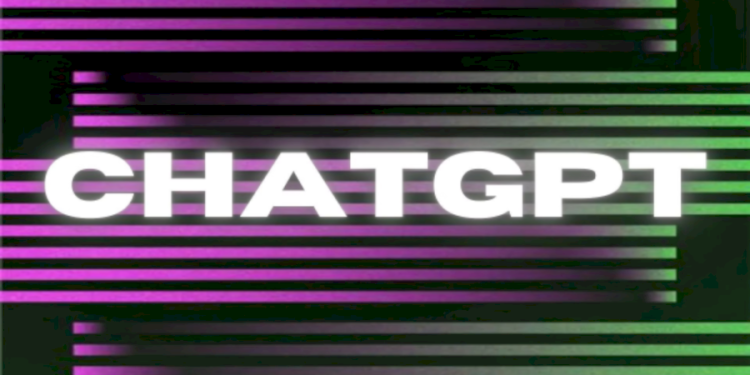The OpenAI bot, ChatGPT, appears to be widely used at the moment. Though far from flawless, this engaging virtual helper can respond to inquiries, clarify difficult subjects, and even compose Valentine’s Day poems.
Because its data is out of current, the bot’s knowledge is quite restricted, and if you aren’t a paid customer, you may find that ChatGPT’s servers are too busy and you are locked out. This AI won’t be taking first place in photo contests anytime soon, and its feature set is limited to text-based jobs like coding and conversation.
Therefore, we’ve compiled a list of seven ChatGPT substitutes—from Google’s Bard to Bing Chat to Socratic—that you might want to give a try instead.
Bing: Microsoft’s Bing Chat is the AI bot you should use if you’re searching for a ChatGPT substitute that is the closest to it. The company’s AI-powered search engine is built on the same platform as ChatGPT, so it should function similarly to its virtual cousin in terms of responses and capabilities.
One benefit of Bing Chat is that it features web search functionality.
Bing’s expertise should be more expansive than ChatGPT’s since it can access information from anywhere on the internet, unlike ChatGPT, which is dependent on its digital libraries of recorded material. Bing Chat acknowledges that it isn’t guaranteeing that its responses will be accurate; instead, it will simply present what the internet has to offer, as shown by the bot’s disclosure of its proprietary AI guidelines.
Bard: You may try Bard, a Google chatbot for search engines, in place of Bing Chat or ChatGPT.
We must admit that during our hands-on Google Bard review, we weren’t particularly impressed with the bot. It’s certainly more attractive than a lot of the other ChatGPT substitutes, but it also occasionally responds inaccurately and fails to give proper acknowledgment to the sources of its information. Though that advice applies to all AI bots, including ChatGPT and these substitutes, you should always err on the side of caution. This is particularly true for Bard.
Character.AI: If you want to talk to an AI, AI is the greatest option on our list, but its service is more of a novelty than a practical tool.
With just your email address, you can register for a free account and start having long chats with bots that are programmed to mimic real-life people or fictional characters. You may talk science with Albert Einstein, Twitter drama with Elon Musk, and the goings on in Bikini Bottom with SpongeBob – or at least with AI representations of these luminaries.
YouChat is a similar bot to ChatGPT that also gets most of its responses from the internet, much like Bing Chat. However, unlike ChatGPT, YouChat is free to use and doesn’t have a waiting list, so you can start speaking with it right away.
You should always be skeptical of the advice and responses provided by AI bots, but I found that YouChat was reasonably accurate in answering my questions, which ranged from learning about The Mandalorian Season 3 to providing an explanation of CRISPR gene editing. In addition, it frequently included links to other websites and information sources that I might visit to learn more about the subject.
Socratic: You can download Socratic, a clever artificial intelligence tool, to your iPhone or Android smartphone to get assistance with homework problems that are stumping you. Socratic can be used to read questions from your camera or to ask you questions directly through the voice assistant. In addition to providing the answer, Socratic also explains it to you by linking to related online resources.
With the aid of this software, you can gain a deeper understanding of a wide range of subjects, including science (biology and physics), math (algebra and trigonometry), and even poetry for your English lessons. Although its knowledge is limited, it’s fairly extensive for a free service, so you might find that it can’t help you with every topic you’re having trouble understanding.
JasperChat: It is an AI chatbot designed for businesses and content creators. With links to its online sources, it can answer inquiries similarly to Bing Chat and YouChat, but it also boasts more advanced productivity-focused features.
It can produce Facebook adverts for goods and services, condense lengthy text passages into summaries, and come up with headlines for stories that a media outlet might wish to publish to cover a certain subject in more detail. Additionally, you may use it as an editor by asking it to lighten up a paragraph or rework your email in a nicer manner. Its services can even be used to produce AI art.
WriteSonic: It is quite similar to JasperChat, as are its ChatSonic features. This productivity-focused bot can generate content ideas and advertisements, create material for you, converse with you, and respond to any queries you may have. It’s also capable of creating AI art images.
However, its method for creating material is a little different. Upon presenting WriteSonic with the identical VR gaming prompt as Jasper, it first presented multiple headline choices. After selecting my favorite (again from a variety of alternatives), I asked it to write a brief introduction for the work. WriteSonic then used my selected intro to generate outlines for how it would continue the piece; I picked the one I liked, modified it a touch, and away it went.









